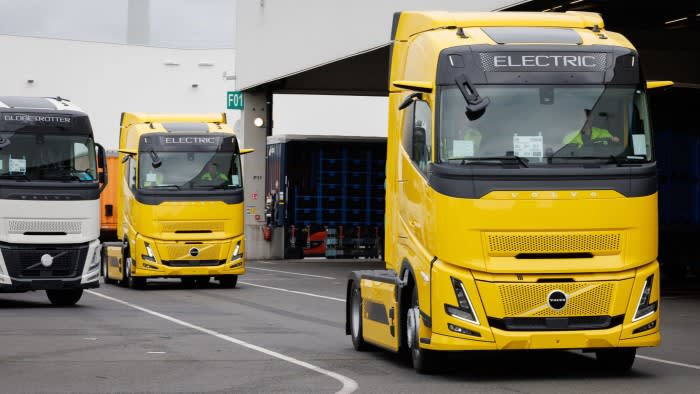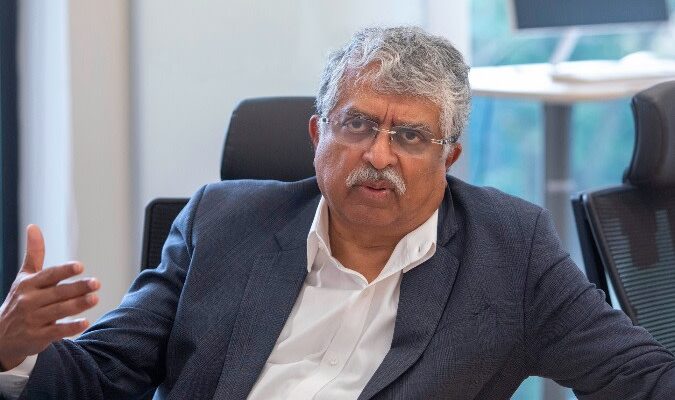
Stay informed with free updates
Simply sign up to the Electric vehicles myFT Digest — delivered directly to your inbox.
Europe will fall behind China in the electrification of trucks if Brussels does not take urgent action to support the transition, industry has warned.
Carmakers have become increasingly vocal in their calls for the European Commission to reconsider a ban on petrol engines starting in 2035.
But truck manufacturers have struggled with an even slower uptake of electric lorries due to the lack of investment in charging infrastructure and electricity grids despite EU regulations for a 45 per cent reduction in emissions by 2030, compared to 2019 levels.
That would be followed by a ban on almost all new diesel trucks by 2040.
Electric trucks accounted for 3.6 per cent of new EU registrations in the first half of this year, compared with 93.6 per cent for diesel trucks, according to the European Automobile Manufacturers’ Association. A 38 per cent share will be needed to hit the target.
“That’s an industrial challenge unheard of. Not even China is moving at that speed,” said Christian Levin, chief executive of German truckmaker Traton, which is majority owned by Volkswagen.
Nevertheless, electric trucks’ penetration rate in China has jumped to about 24 per cent, from as low as 4 per cent two years earlier, with battery giant CATL predicting that half of all new trucks sold in the country will be electric-powered by 2028.
Levin said Chinese rivals would increasingly benefit from being able to scale up in their home market.
Agustín Delgado, chief technology officer of Spanish energy group Iberdrola said: “What could happen in the end is that trucks coming from China . . . will go down in cost faster than the trucks being built in Europe . . . because they are building much more than us.”
He added that Europe still had time to stay competitive in the electric truck space but warned it “needed to move forward” quickly to build out the entire ecosystem.
Having previously lumped carmakers and truckmakers together, the commission has established a “task force” to expedite the work on charging infrastructure and grid capacity to enable a faster rollout of electric trucks.
Truckmakers along with operators of infrastructure and grids as well as Amazon will meet with Brussels on Wednesday to call for urgent action.
For logistics companies and other truck users, the purchase of battery-run vehicles needs to make economic sense since most businesses operate on thin margins.
According to the International Energy Agency, battery-run trucks in Europe and the US are likely to reach parity on the total cost of ownership compared to diesel trucks for long-haul operations by 2030, whereas China has already achieved that.
Although Amazon signed one of the biggest deals in the industry, ordering 200 electric trucks from Daimler earlier this year, factors including vehicle range, charging, grid network and energy prices need to be aligned for further investment.
“We are confident that we can use the 200 trucks in an economically viable sense, but we are also seeing limitations to quickly go further,” said Andreas Marschner, Amazon’s vice-president who leads global infrastructure development.
Anja van Niersen, CEO of Milence — a joint venture between Daimler Truck, Traton and Volvo Group — to build out the public charging infrastructure for electric trucks, stressed that the industry already has the technology, the products as well as the willingness to expand the infrastructure.
But investments in charging and grids vary country by country while permits to build out the grids often take years.
Chris Heron, secretary-general of E-Mobility Europe added: “Every part of the industry is investing heavily. What’s missing is policy alignment.”
Additional reporting by Alice Hancock in Brussels


